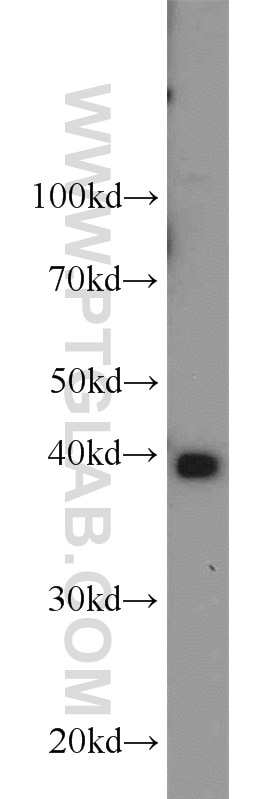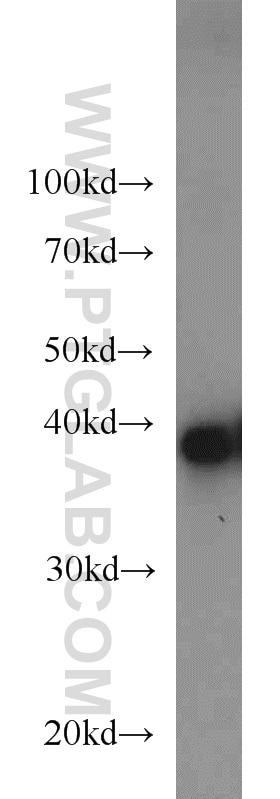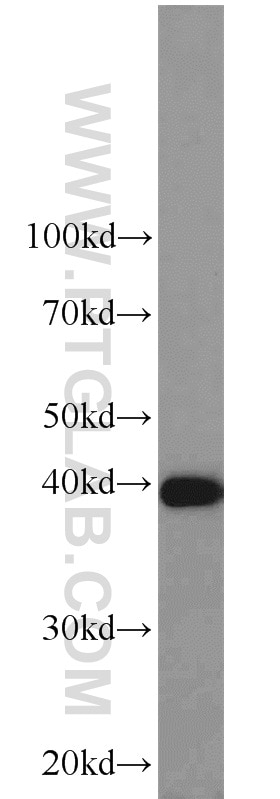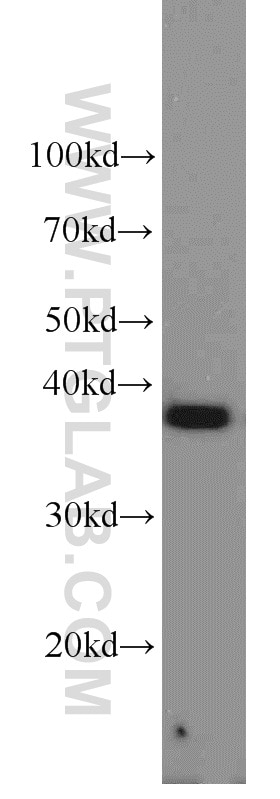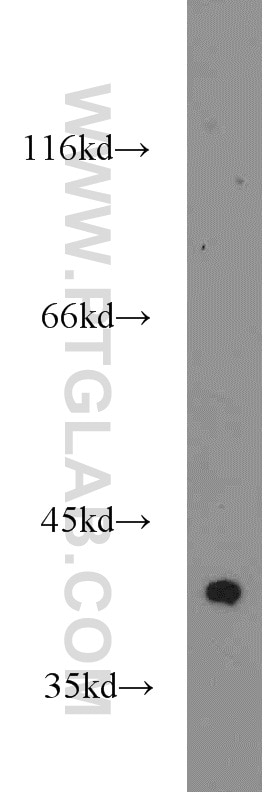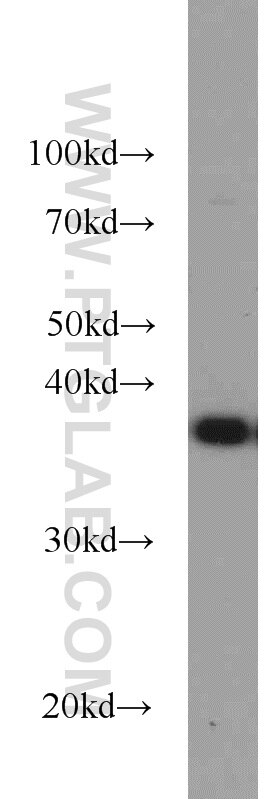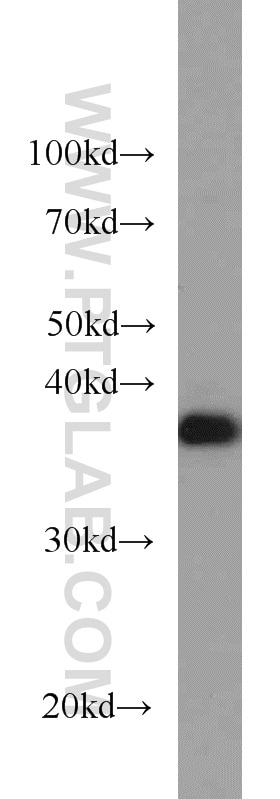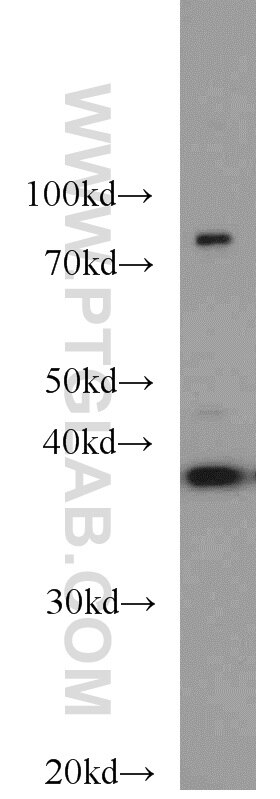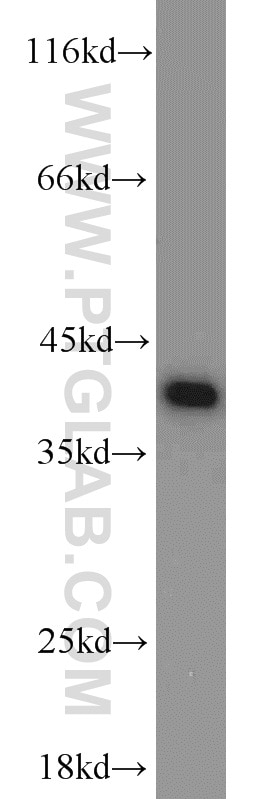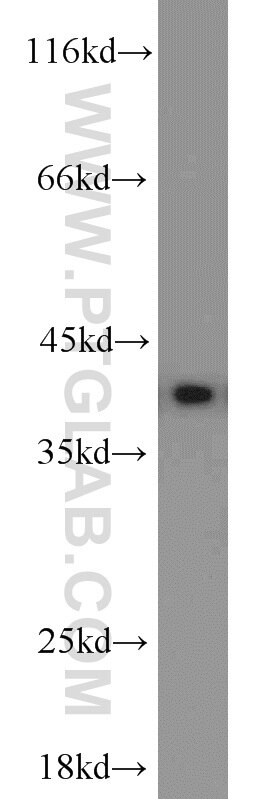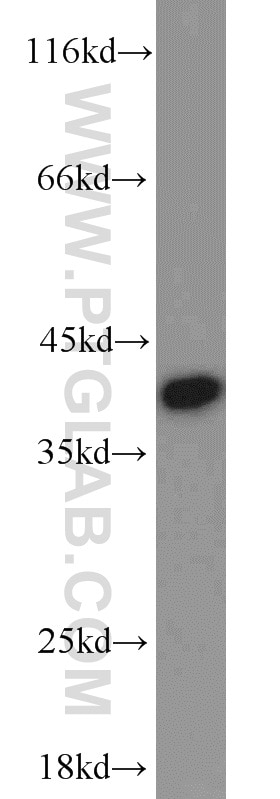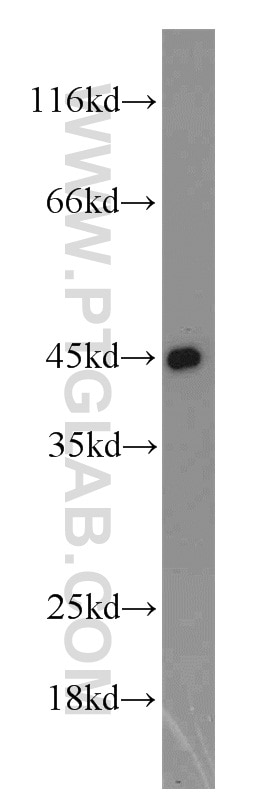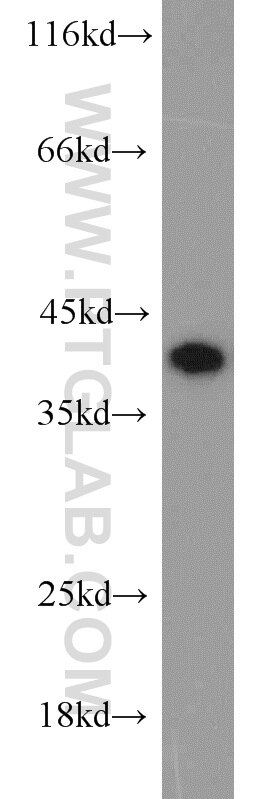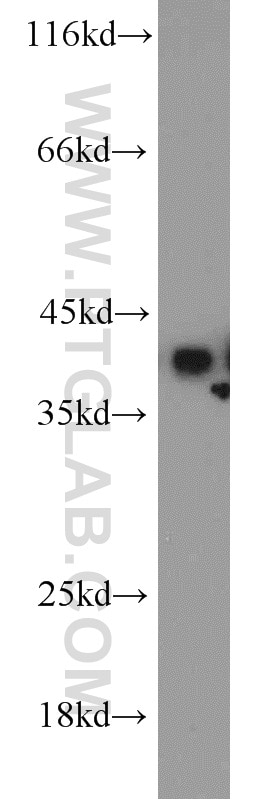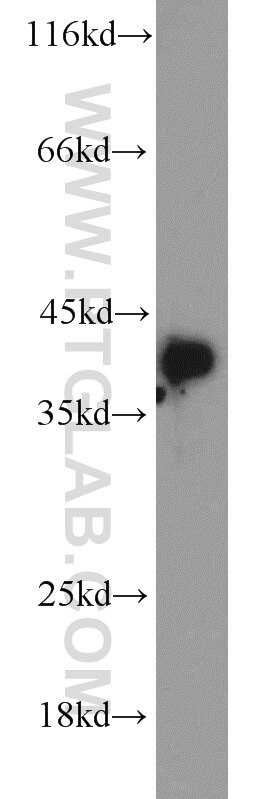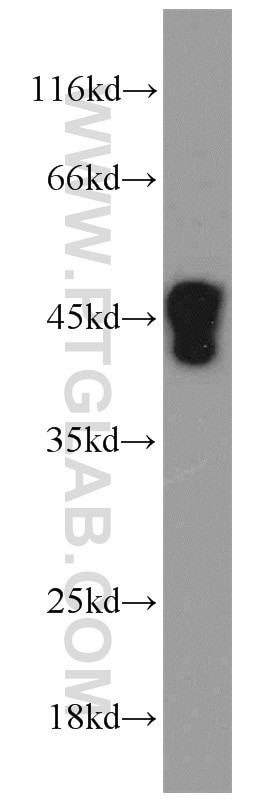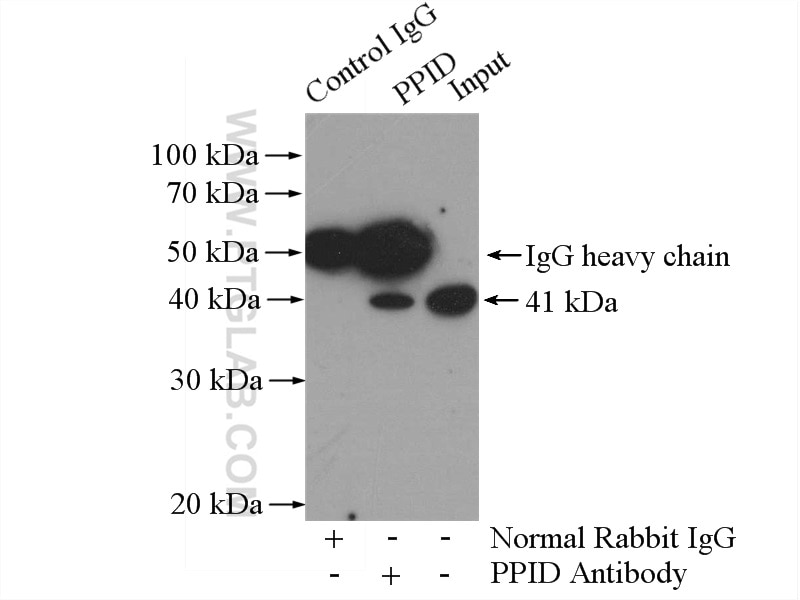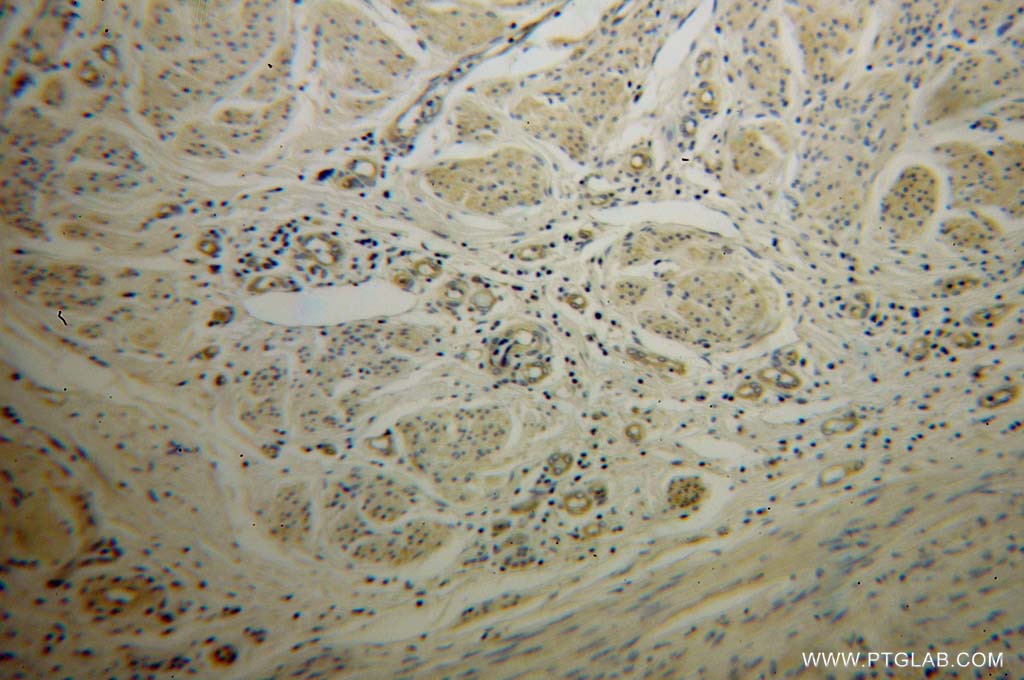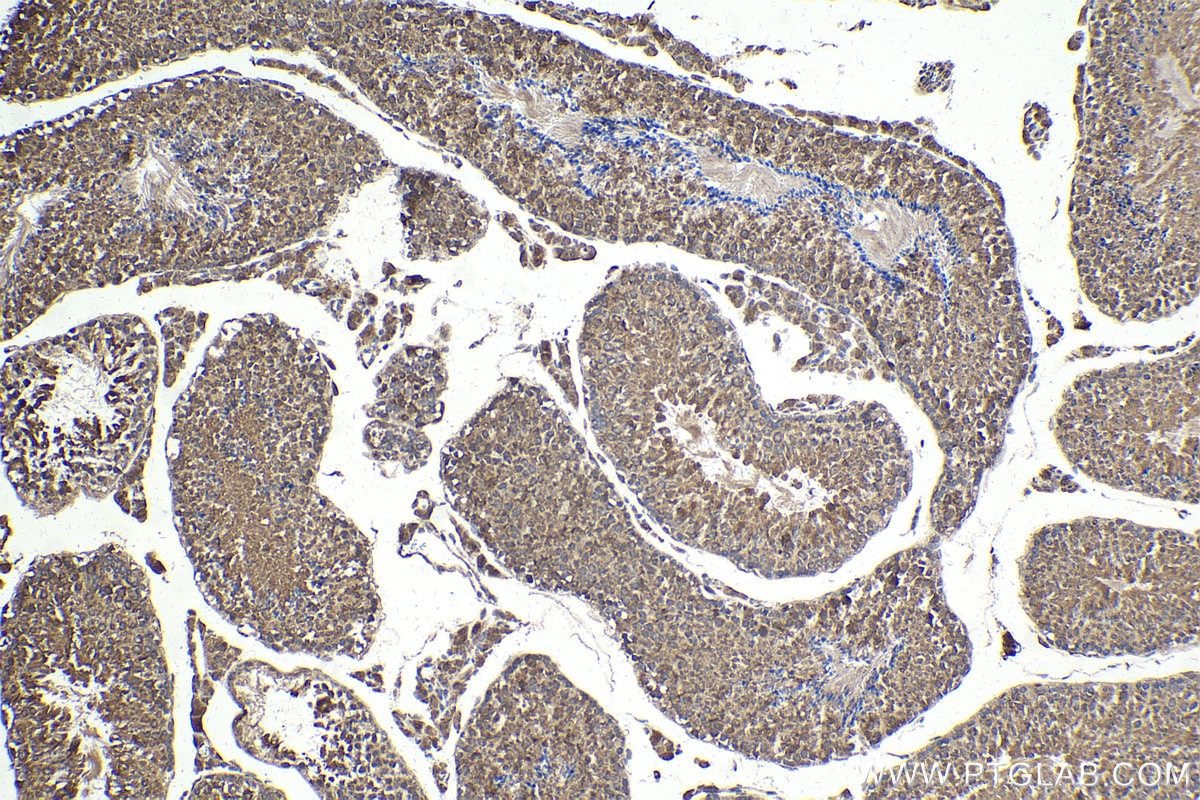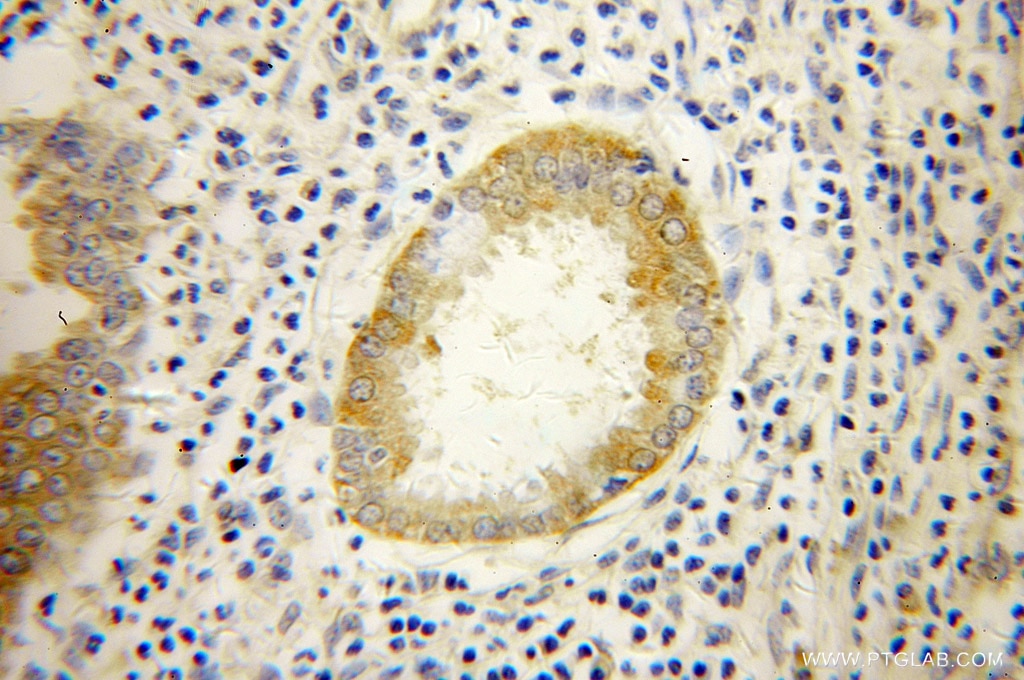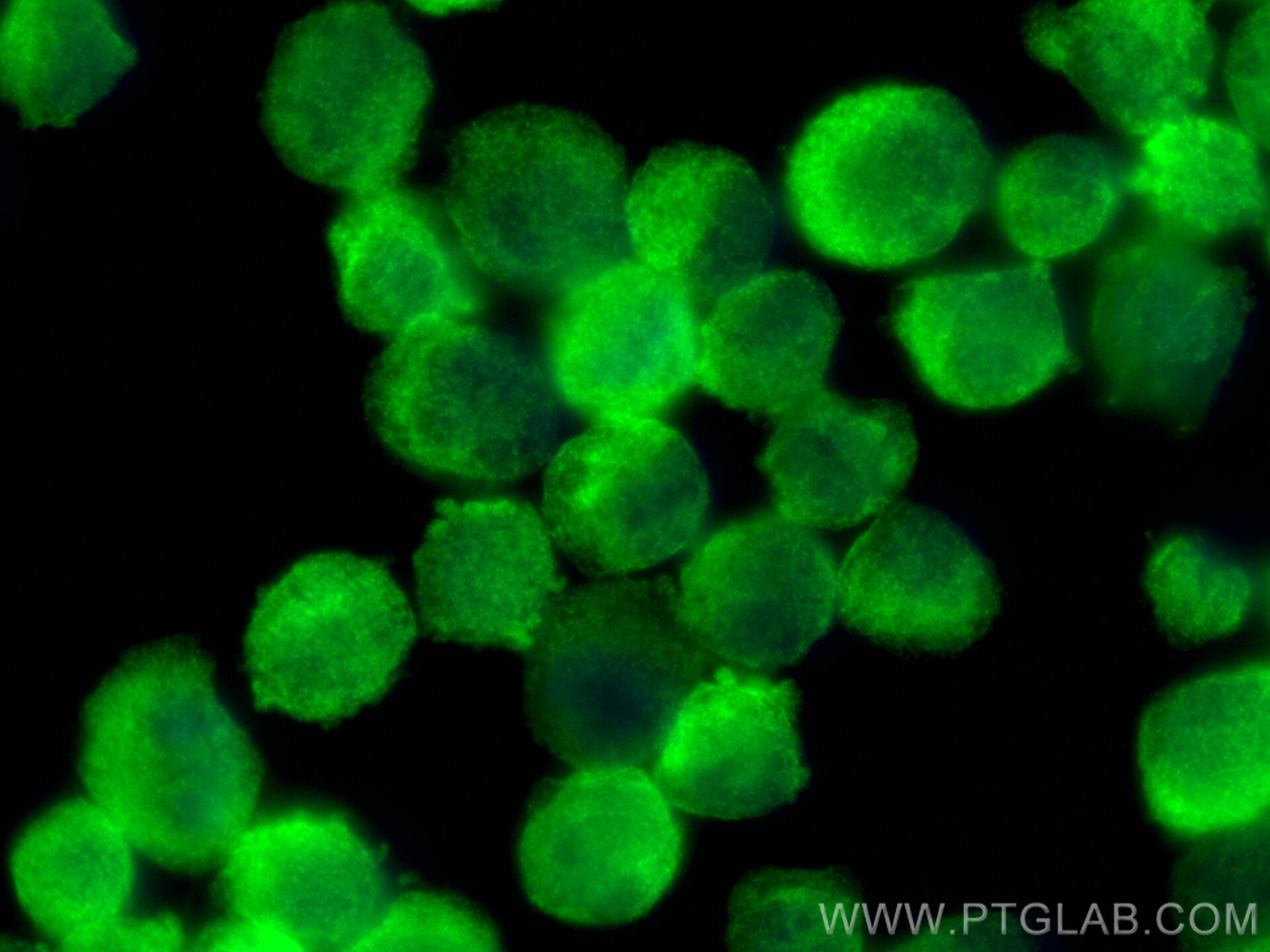Tested Applications
| Positive WB detected in | mouse brain tissue, A549 cells, human brain tissue, Jurkat cells, MCF-7 cells, NIH/3T3 cells, Raji cells, rat brain tissue |
| Positive IP detected in | mouse brain tissue |
| Positive IHC detected in | mouse testis tissue, human cervical cancer tissue Note: suggested antigen retrieval with TE buffer pH 9.0; (*) Alternatively, antigen retrieval may be performed with citrate buffer pH 6.0 |
| Positive IF/ICC detected in | K-562 cells |
Recommended dilution
| Application | Dilution |
|---|---|
| Western Blot (WB) | WB : 1:500-1:2000 |
| Immunoprecipitation (IP) | IP : 0.5-4.0 ug for 1.0-3.0 mg of total protein lysate |
| Immunohistochemistry (IHC) | IHC : 1:250-1:1000 |
| Immunofluorescence (IF)/ICC | IF/ICC : 1:50-1:500 |
| It is recommended that this reagent should be titrated in each testing system to obtain optimal results. | |
| Sample-dependent, Check data in validation data gallery. | |
Published Applications
| WB | See 14 publications below |
| IHC | See 1 publications below |
| IF | See 1 publications below |
| CoIP | See 3 publications below |
Product Information
12716-1-AP targets PPID in WB, IHC, IF/ICC, IP, CoIP, ELISA applications and shows reactivity with human, mouse, rat samples.
| Tested Reactivity | human, mouse, rat |
| Cited Reactivity | human, mouse, rat, bovine |
| Host / Isotype | Rabbit / IgG |
| Class | Polyclonal |
| Type | Antibody |
| Immunogen |
CatNo: Ag3409 Product name: Recombinant human PPID protein Source: e coli.-derived, PGEX-4T Tag: GST Domain: 57-370 aa of BC030707 Sequence: GIGHTTGKPLHFKGCPFHRIIKKFMIQGGDFSNQNGTGGESIYGEKFEDENFHYKHDREGLLSMANAGRNTNGSQFFITTVPTPHLDGKHVVFGQVIKGIGVARILENVEVKGEKPAKLCVIAECGELKEGDDGGIFPKDGSGDSHPDFPEDADIDLKDVDKILLITEDLKNIGNTFFKSQNWEMAIKKYAEVLRYVDSSKAVIETADRAKLQPIALSCVLNIGACKLKMSNWQGAIDSCLEALELDPSNTKALYRRAQGWQGLKEYDQALADLKKAQGIAPEDKAIQAELLKVKQKIKAQKDKEKAVYAKMFA Predict reactive species |
| Full Name | peptidylprolyl isomerase D |
| Calculated Molecular Weight | 370 aa, 41 kDa |
| Observed Molecular Weight | 38-41 kDa |
| GenBank Accession Number | BC030707 |
| Gene Symbol | PPID |
| Gene ID (NCBI) | 5481 |
| RRID | AB_2237551 |
| Conjugate | Unconjugated |
| Form | Liquid |
| Purification Method | Antigen affinity purification |
| UNIPROT ID | Q08752 |
| Storage Buffer | PBS with 0.02% sodium azide and 50% glycerol, pH 7.3. |
| Storage Conditions | Store at -20°C. Stable for one year after shipment. Aliquoting is unnecessary for -20oC storage. 20ul sizes contain 0.1% BSA. |
Background Information
PPID(Peptidyl-prolyl cis-trans isomerase D) is also named CYP40, and belongs to the cyclophilin-type PPIase family, which accelerates the folding of proteins. It catalyzes the cis-trans isomerization of proline imidic peptide bonds in oligopeptides. The inactivation of the Ppid gene rescued the disease phenotype of Col6a1 deficiency (PMID:19293339). This PPID antibody detected a strong band at an apparent molecular mass of 41 kDa and a weak band at 70 kDa due to crosslink (PMID: 33320090, 29097228). This protein should not be confused with mitochondrial peptidyl-prolyl cis-trans isomerase F (PPIF) which is often referred to as cyclophilin D or CypD (PMID: 23538482).
Protocols
| Product Specific Protocols | |
|---|---|
| IF protocol for PPID antibody 12716-1-AP | Download protocol |
| IHC protocol for PPID antibody 12716-1-AP | Download protocol |
| IP protocol for PPID antibody 12716-1-AP | Download protocol |
| WB protocol for PPID antibody 12716-1-AP | Download protocol |
| Standard Protocols | |
|---|---|
| Click here to view our Standard Protocols |
Publications
| Species | Application | Title |
|---|---|---|
Biomater Res Hyaluronic Acid-Functionalized Bismuth Vanadate/Molybdenum Disulfide Nanoheterojunctions Achieve Efficient Phototherapy of Hypoxic Tumor | ||
Cardiovasc Toxicol PM2.5-Induced Programmed Myocardial Cell Death via mPTP Opening Results in Deteriorated Cardiac Function in HFpEF Mice. | ||
Mol Med Rep Downregulation of microRNA‑199a‑5p attenuates hypoxia/reoxygenation‑induced cytotoxicity in cardiomyocytes by targeting the HIF‑1α‑GSK3β‑mPTP axis. | ||
Brain Res Detection of PPID-interacting proteins in migraine rats by IP-MS and validation by bioinformatics analysis and experiments | ||
Nat Cell Biol Chaperone-mediated insertion of mitochondrial import receptor TOM70 protects against diet-induced obesity |

